About the School
Japanese: 大阪ニューポイント日本語学校(おおさか にゅーぽいんと にほんごがっこう)
English: Osaka New Point Japanese Language School
Chinese notation: 「大阪新重点日本語学校」
Short name: Osaka New Point JLS
Message from the Principal
For international students who wish to study and build a career in Japan, a Japanese language school is a vital gateway to society. Amid Japan’s aging population and labor shortages, talent from overseas is increasingly important. Mastering Japanese and building a foundation for better employment are essential for life and career development in Japan. At our school, we value multicultural coexistence and fully support students so they can quickly adapt to Japanese society through the acquisition of Japanese.
We provide support for both learning and daily life, creating an environment that makes study easier. Alongside a well-structured curriculum, we offer practical life guidance so students can focus on their studies with peace of mind. In particular, we emphasize legal compliance and understanding of local rules and manners, helping students take their place as genuine members of Japanese society.
Studying abroad can be challenging; that is why we strive to create a welcoming environment that supports both study and daily living, helping students realize their dreams. Our goal is not only to teach Japanese but also to cultivate individuals who can smoothly adapt to life and work in Japan and who embody the spirit of multicultural coexistence. Let us take the first step toward a new future together through Japanese language learning.
Principal, Osaka New Point Japanese Language School — Kitagawa Naoko
School Name & Operator Information
- School name: Osaka New Point Japanese Language School
- Short name: Osaka New Point JLS
- Address: 〒577-0032 大阪府東大阪市御厨2丁目4-34
- TEL: 06-6753-7914 / FAX: 06-6753-7915
- Operator: 明星産業株式会社
Access
- Nearest stations
- Kintetsu Nara Line: Kawachi-Kosaka Station
- Osaka Metro Chuo Line: Nagata Station
- Osaka Metro Chuo Line: Takaida Station / JR Osaka-Higashi Line: Takaida-Chuo Station
Courses, Classes & Class Hours
Course
We offer a College/University Preparatory Course for further study at vocational schools, colleges, and universities. Intakes:
- April
- October
Classes
Small classes of up to 20 students. Class placement is based on learning progress and placement test results. We have morning and afternoon classes; students are assigned depending on the placement.
Class hours
- Morning: 9:00–12:20
- Afternoon: 13:00–16:20
Annual Schedule (Example)
The schedule may vary by academic year.
| Month | Ceremonies/Breaks | Events | Exams |
|---|---|---|---|
| Apr | Entrance Ceremony | ||
| May | Traffic Safety Class | ||
| Jun | |||
| Jul | Tanabata / Disaster Prevention Center Visit | JLPT & Term Test | |
| Aug | Summer Break | Flea Market | |
| Sep | |||
| Oct | Autumn Break / Entrance Ceremony | ||
| Nov | Safety & Risk Management Session | ||
| Dec | Winter Break | Christmas Speech Contest | JLPT & Term Test |
| Jan | |||
| Feb | Setsubun | ||
| Mar | Graduation Ceremony / Spring Break | Excursion | Graduation Exam |
Overview of Events & Educational Aims
Entrance Ceremony
Students experience their first formal Japanese ceremony, celebrating their decision to study in Japan while reaffirming gratitude to their families and a commitment to diligent learning.
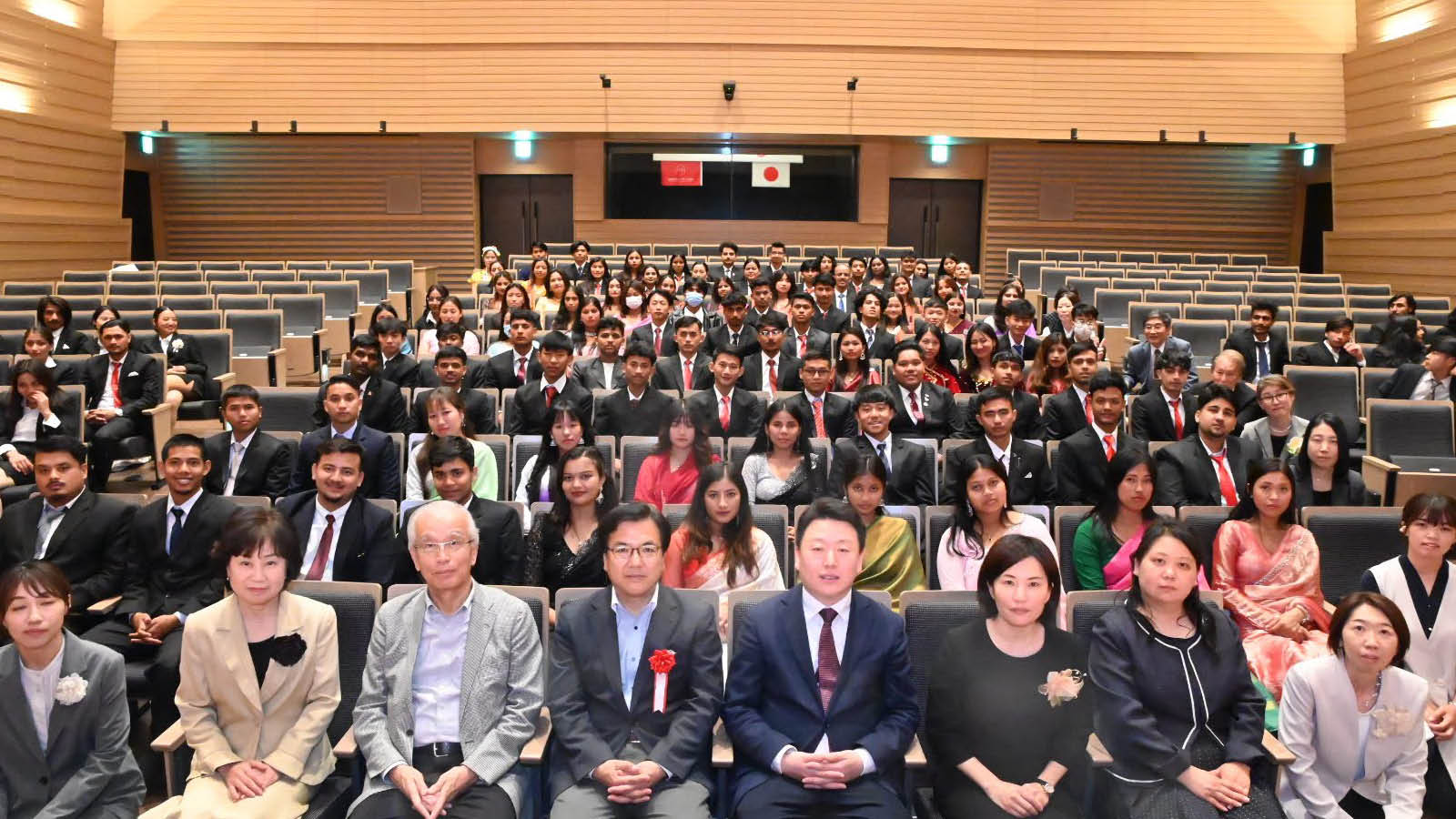
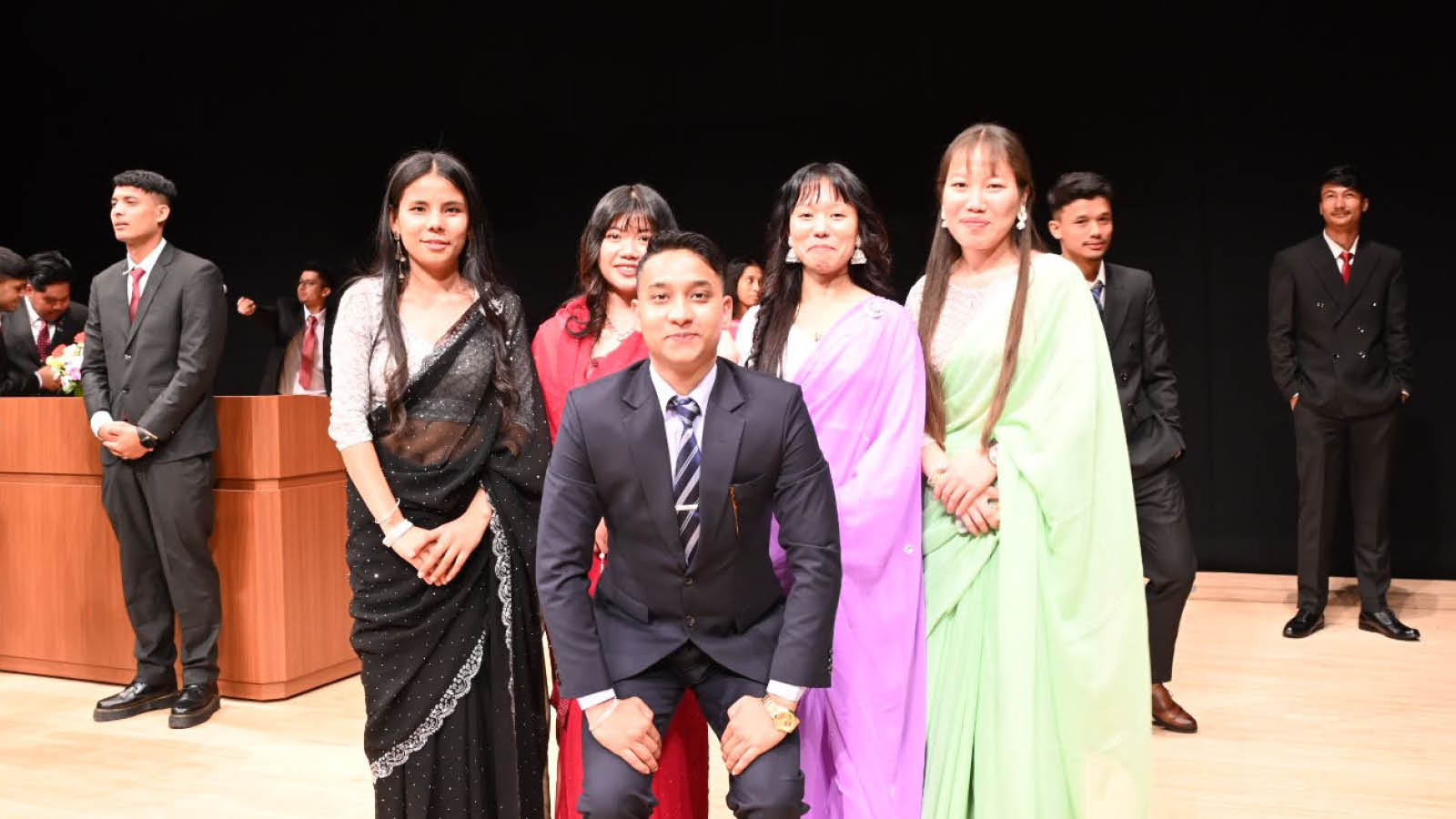
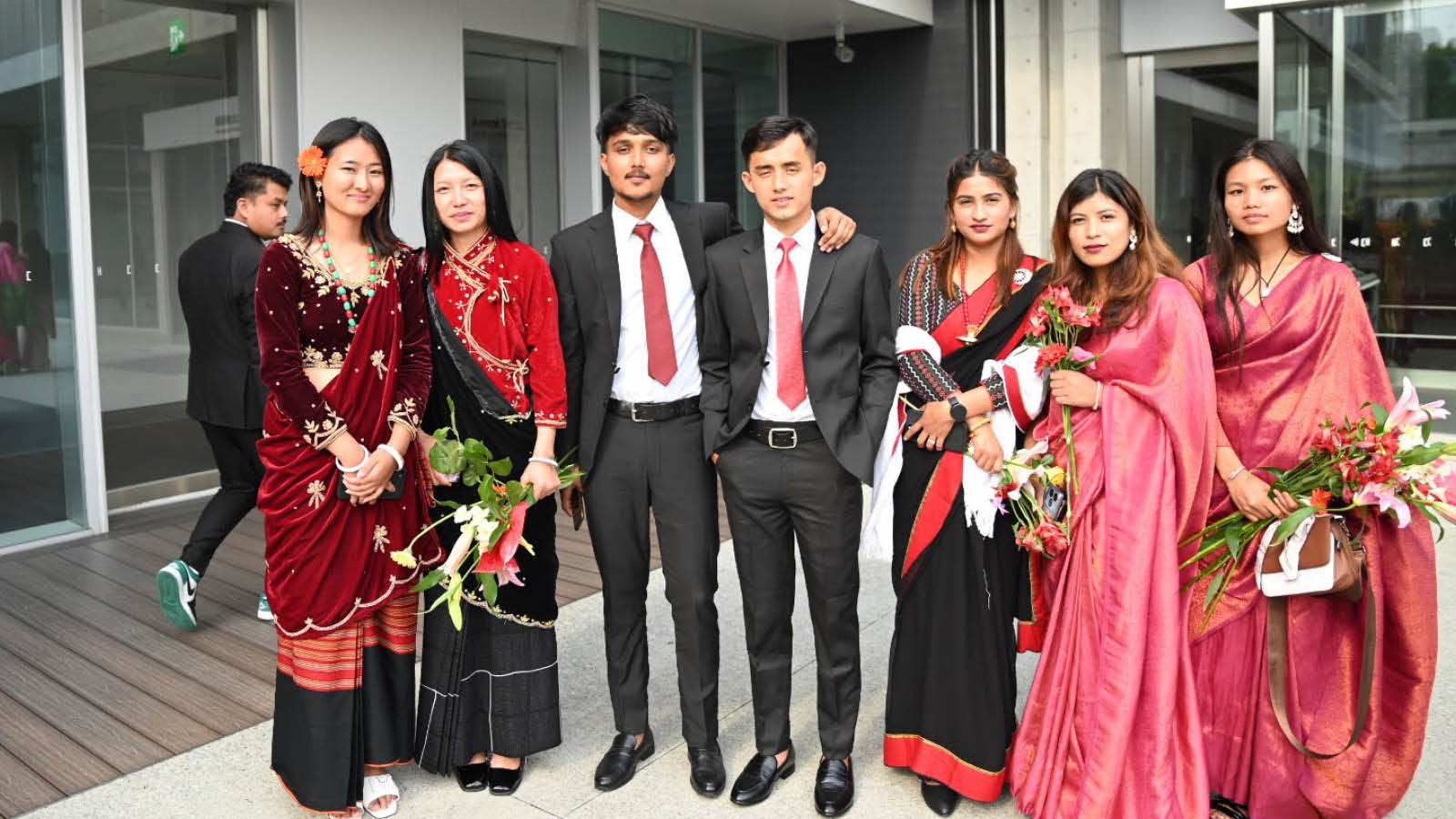
Traffic Safety Class
As many students commute by bicycle, we emphasize understanding and observing traffic rules. Sessions are conducted with support from the local police.
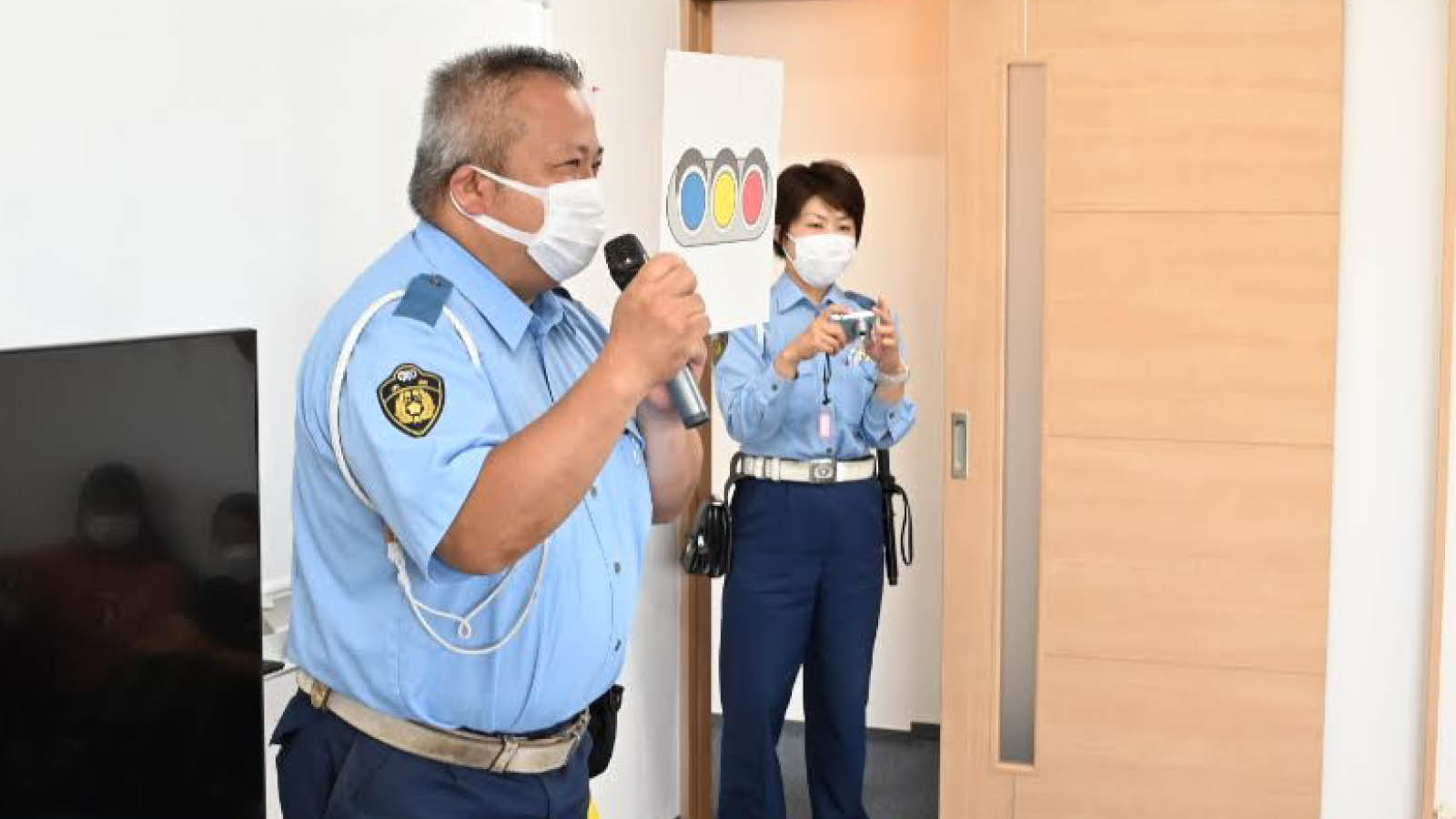
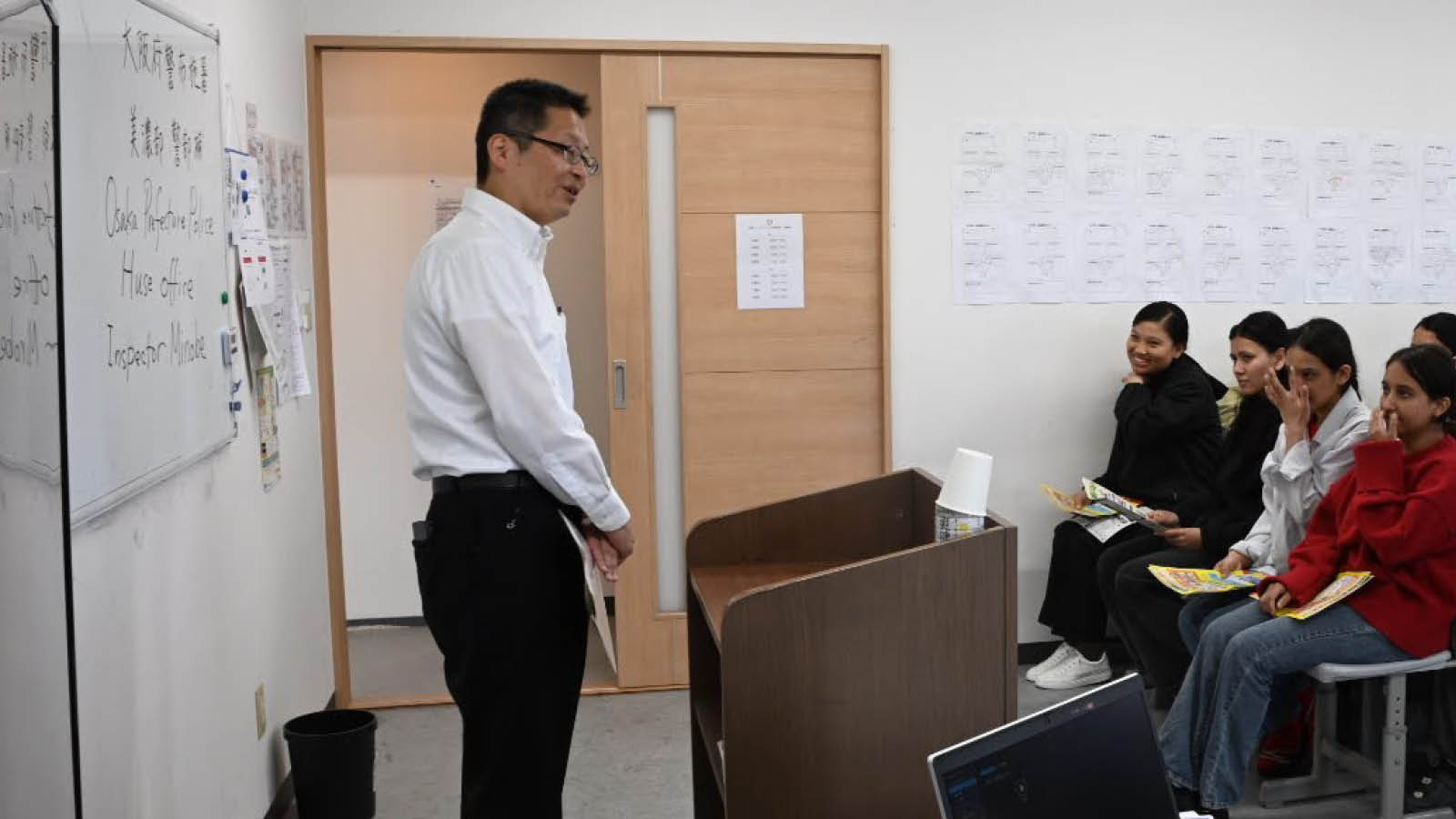
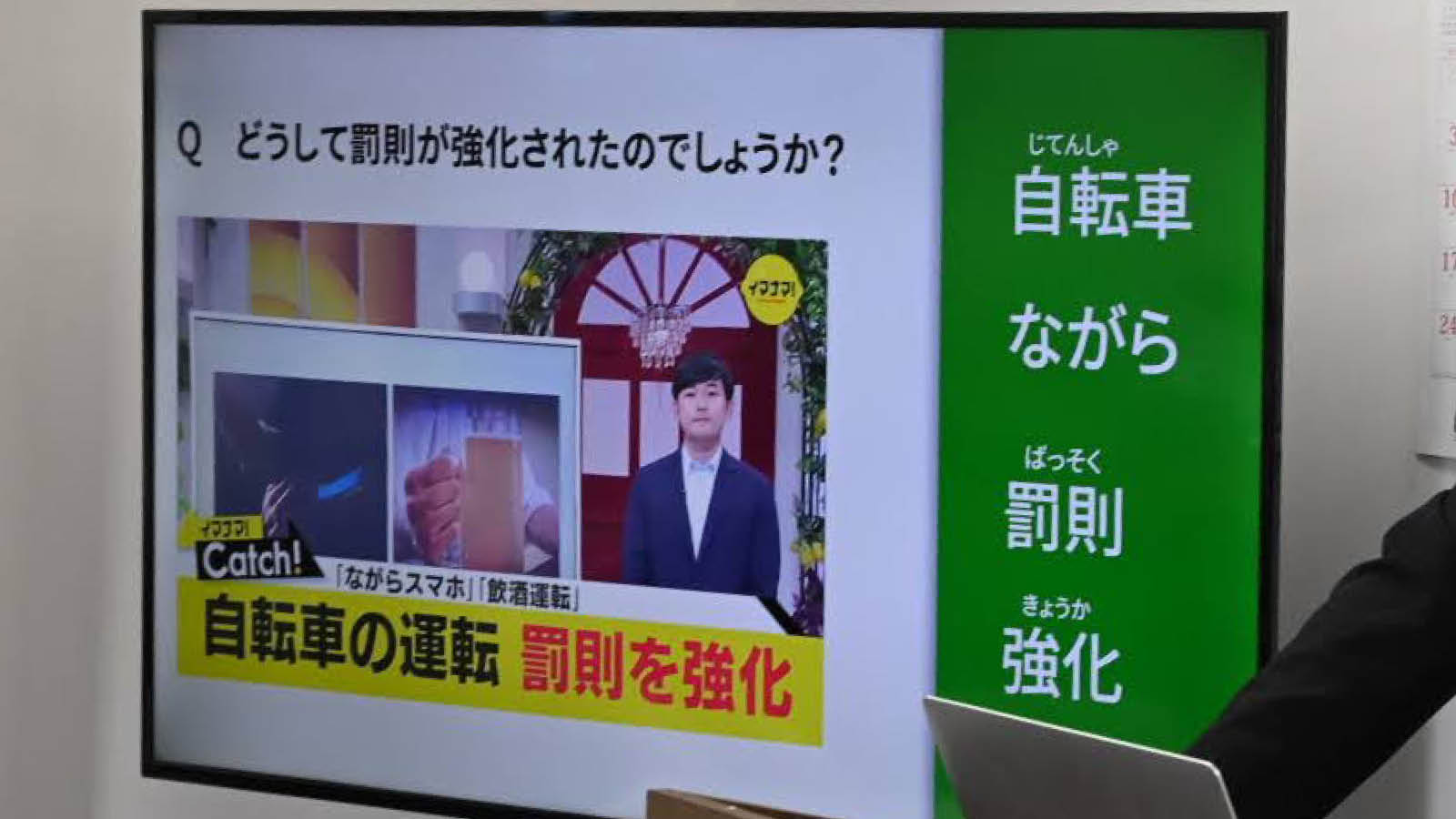
Tanabata
In Japan, Tanabata is widely enjoyed as a seasonal custom rather than a strictly religious event.
Writing wishes in words is also valuable from a Japanese-language education perspective.
First-year students (shortly after enrollment) and second-year students (after about one year of study) express their dreams and goals according to their Japanese level.
Wishes such as \"I want to make my family happy,\" \"I want to achieve my academic goals,\" and \"I want to get a good job\" create an opportunity to connect language skills with future planning.
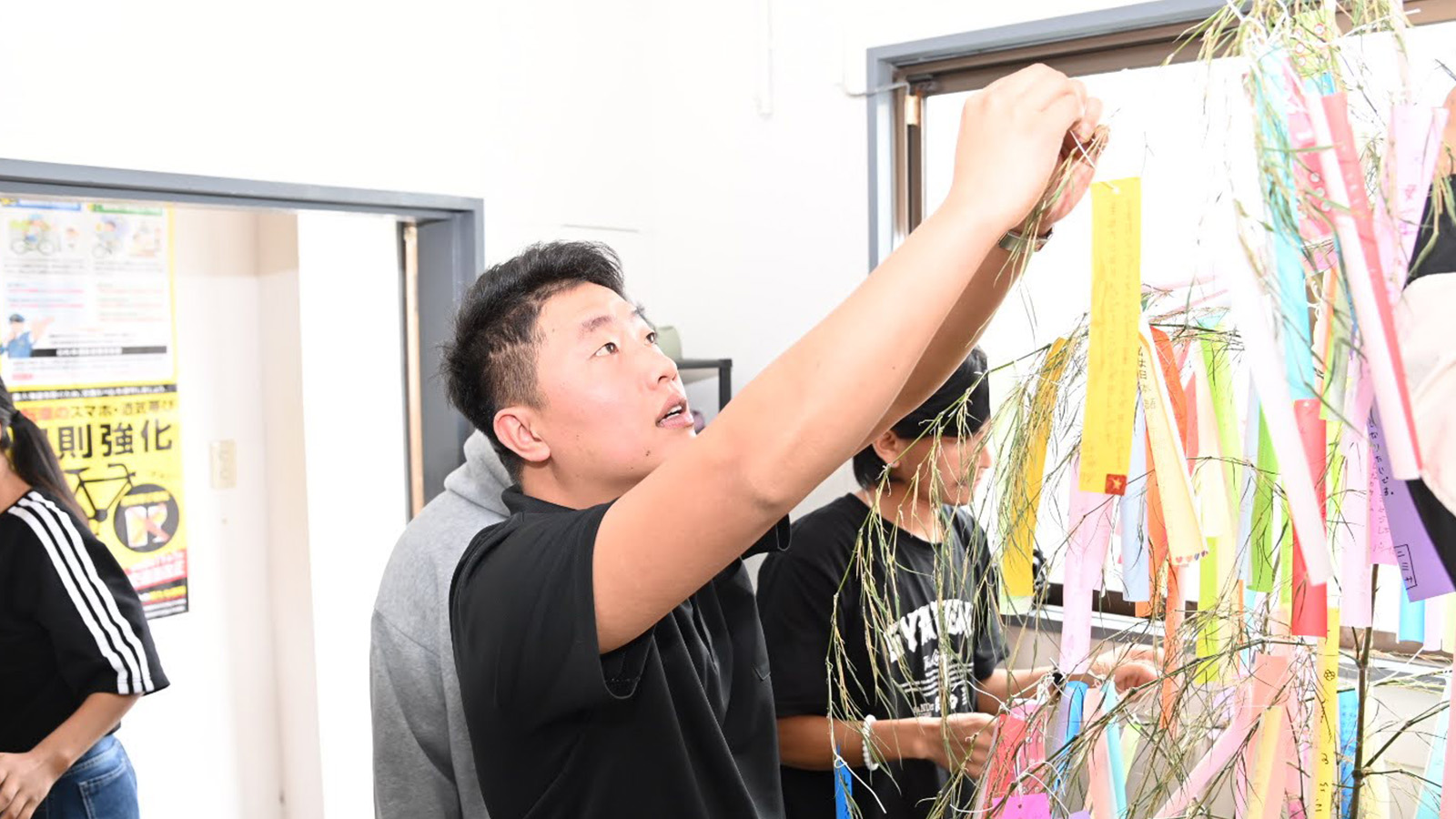
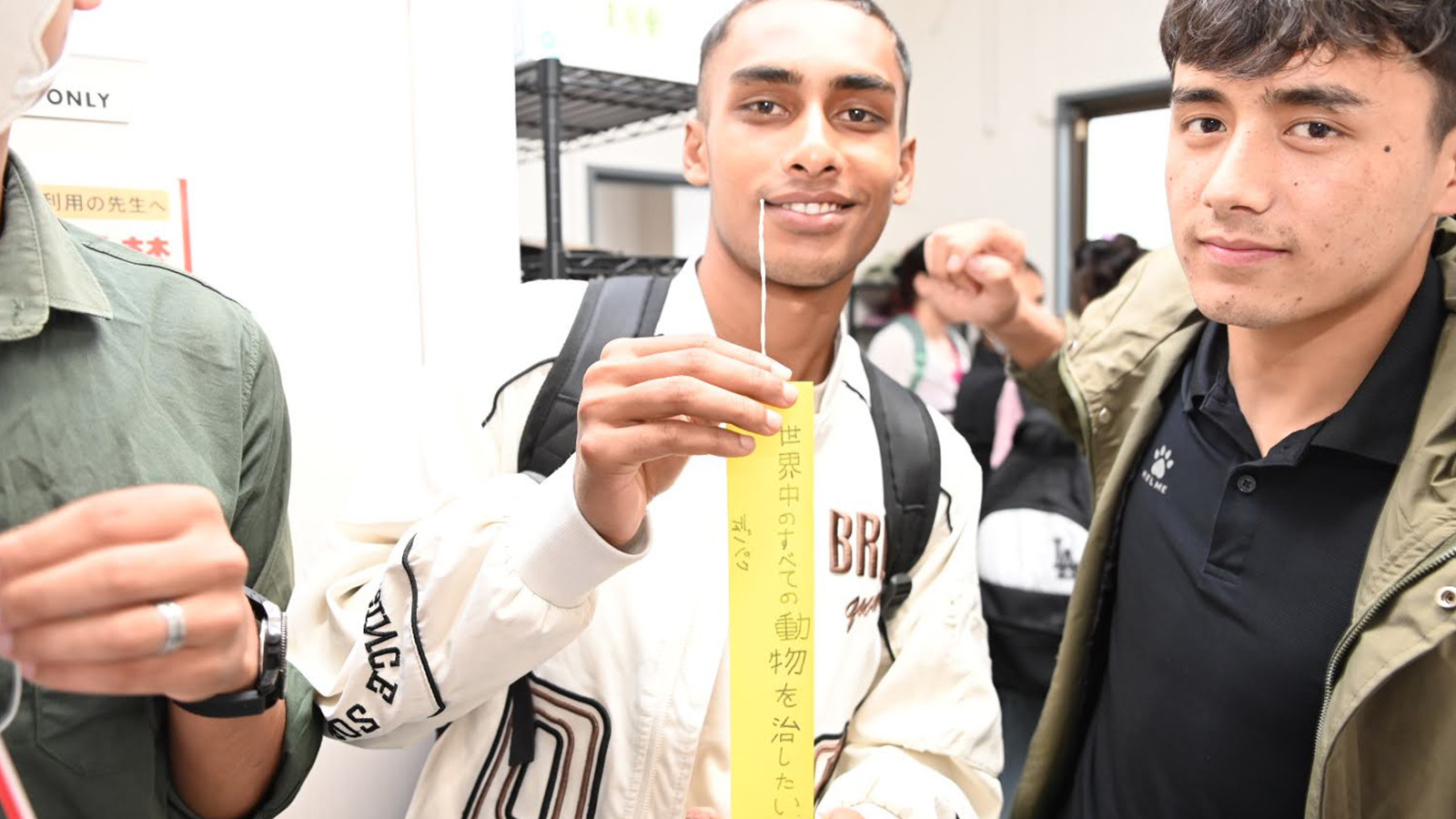
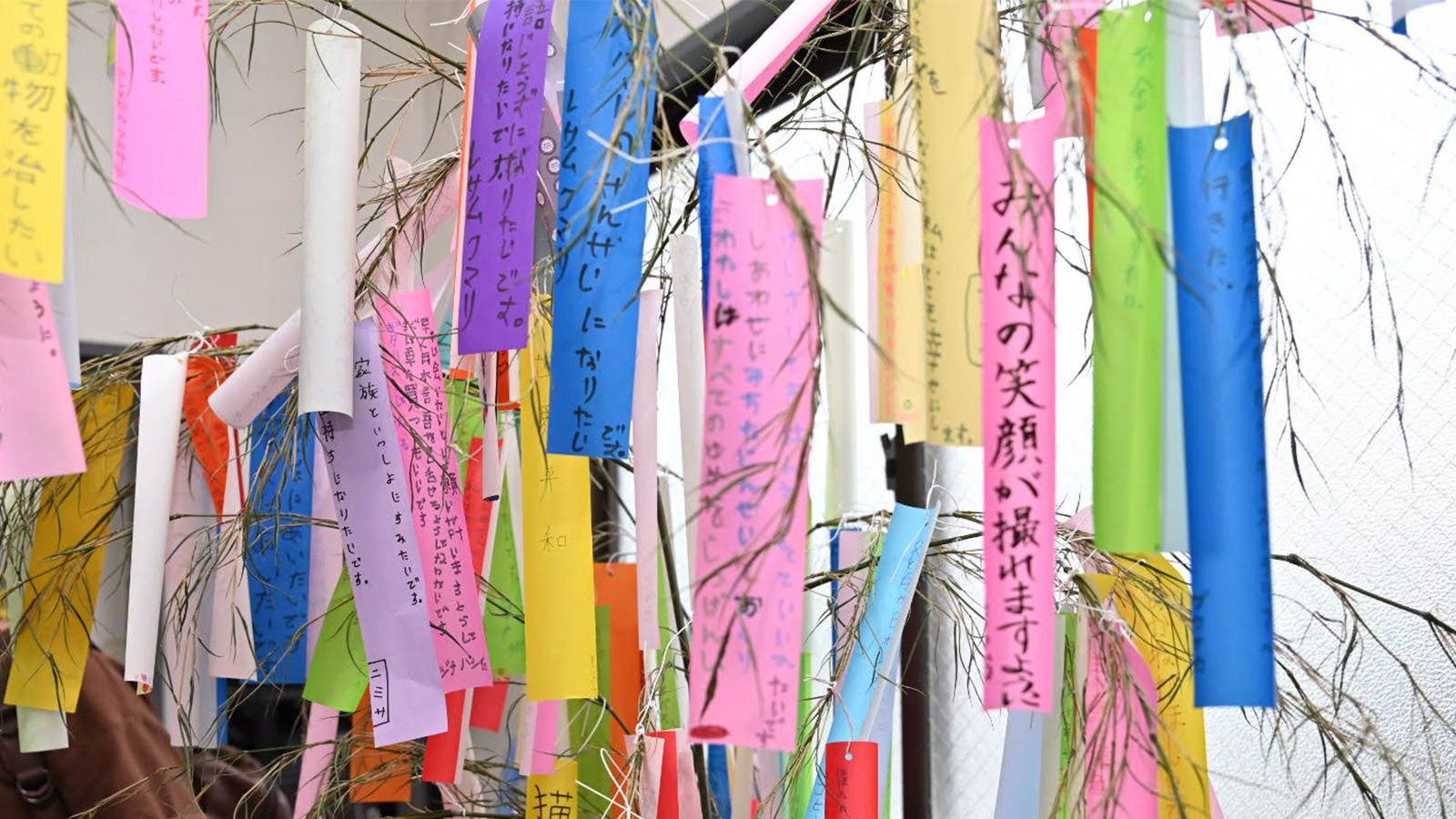
Flea Market
Our flea market is held periodically.
With support from staff, partner companies, and the local community, reusable daily goods and school supplies are shared as practical support for students.
The textbook Chukyu e Ikou includes a reading passage about flea markets, so this event also gives students a chance to experience what they study in class.
Through selecting and sharing needed items while communicating in Japanese, students deepen mutual understanding and leave with smiles.
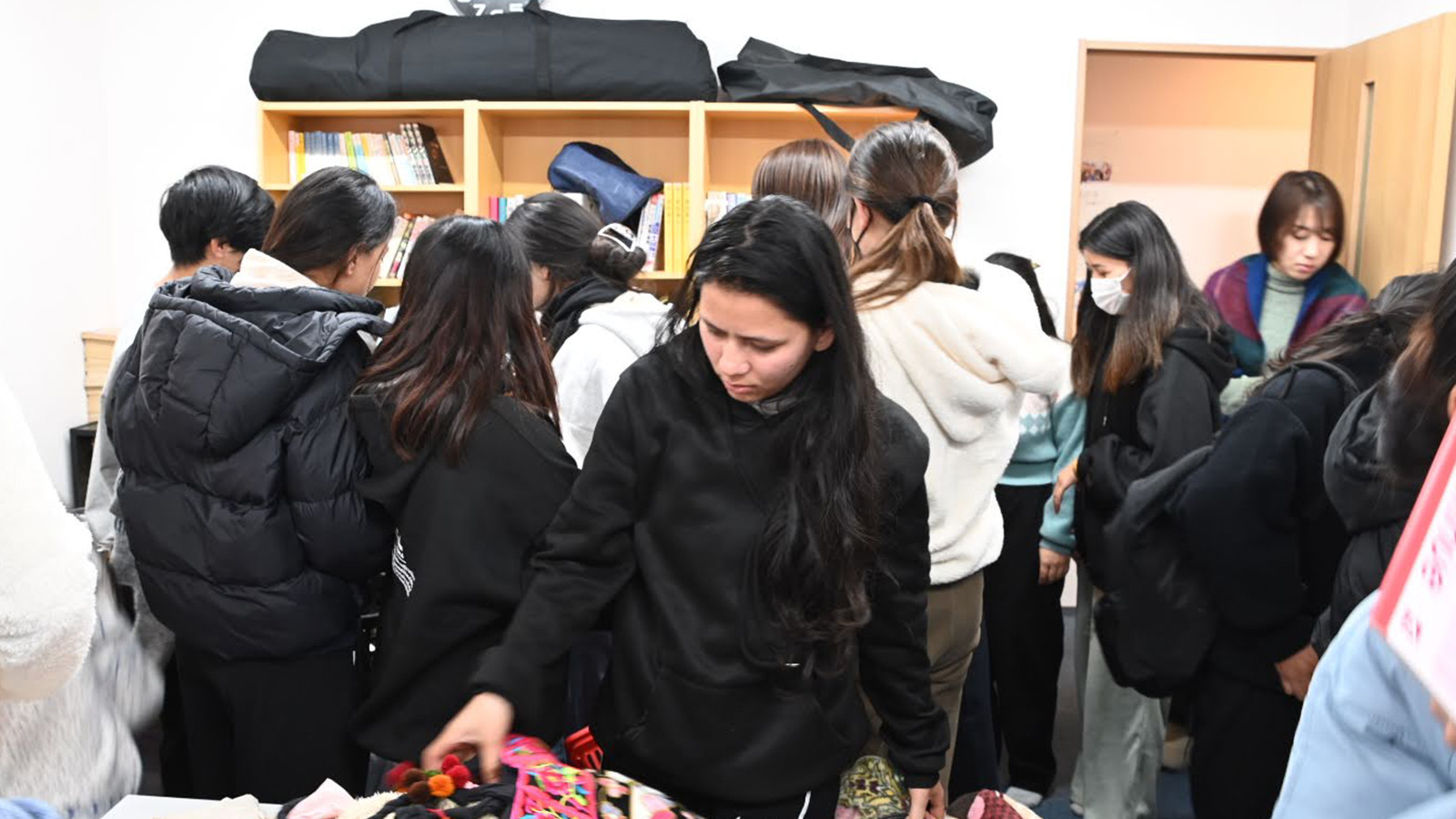
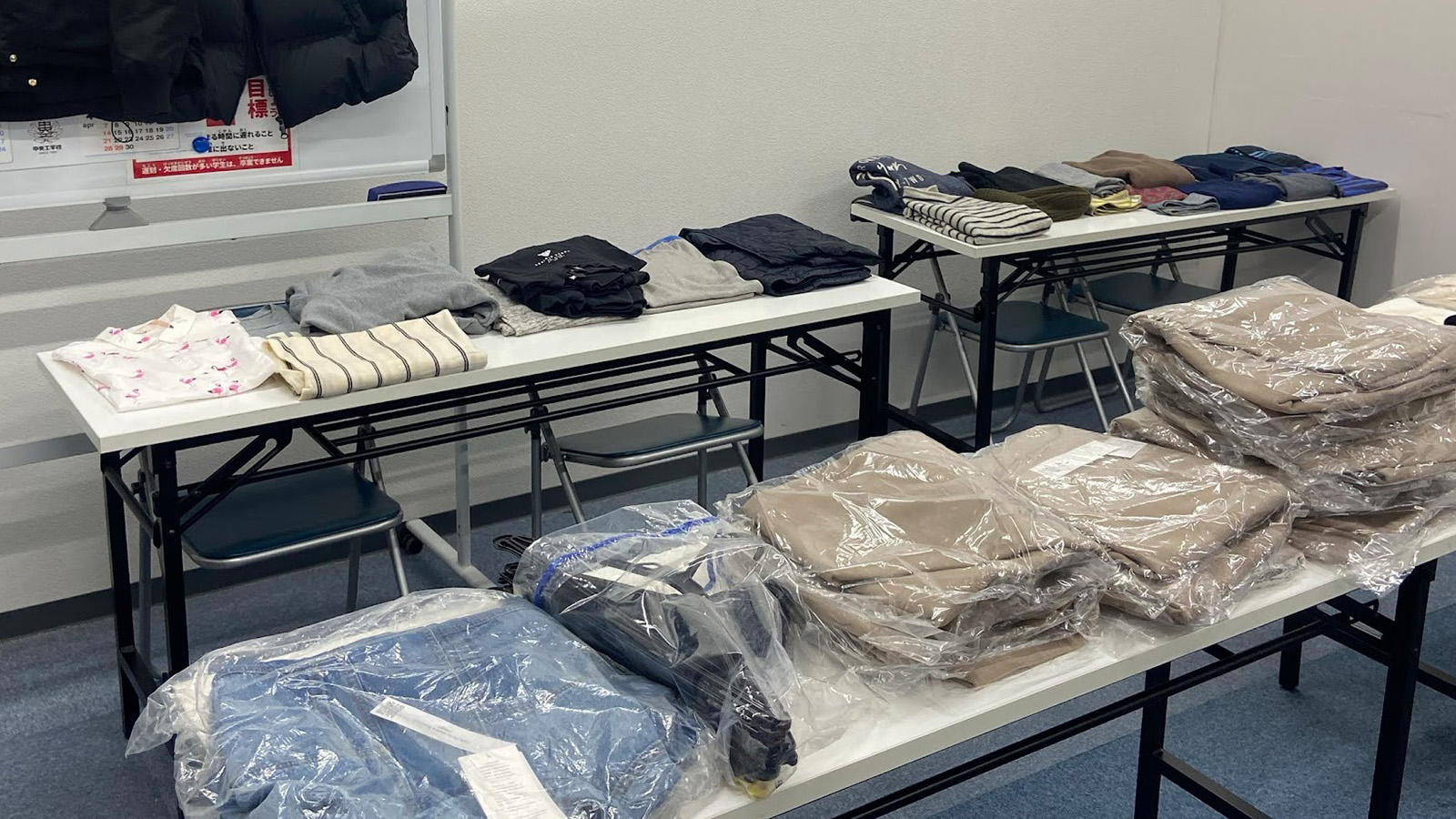
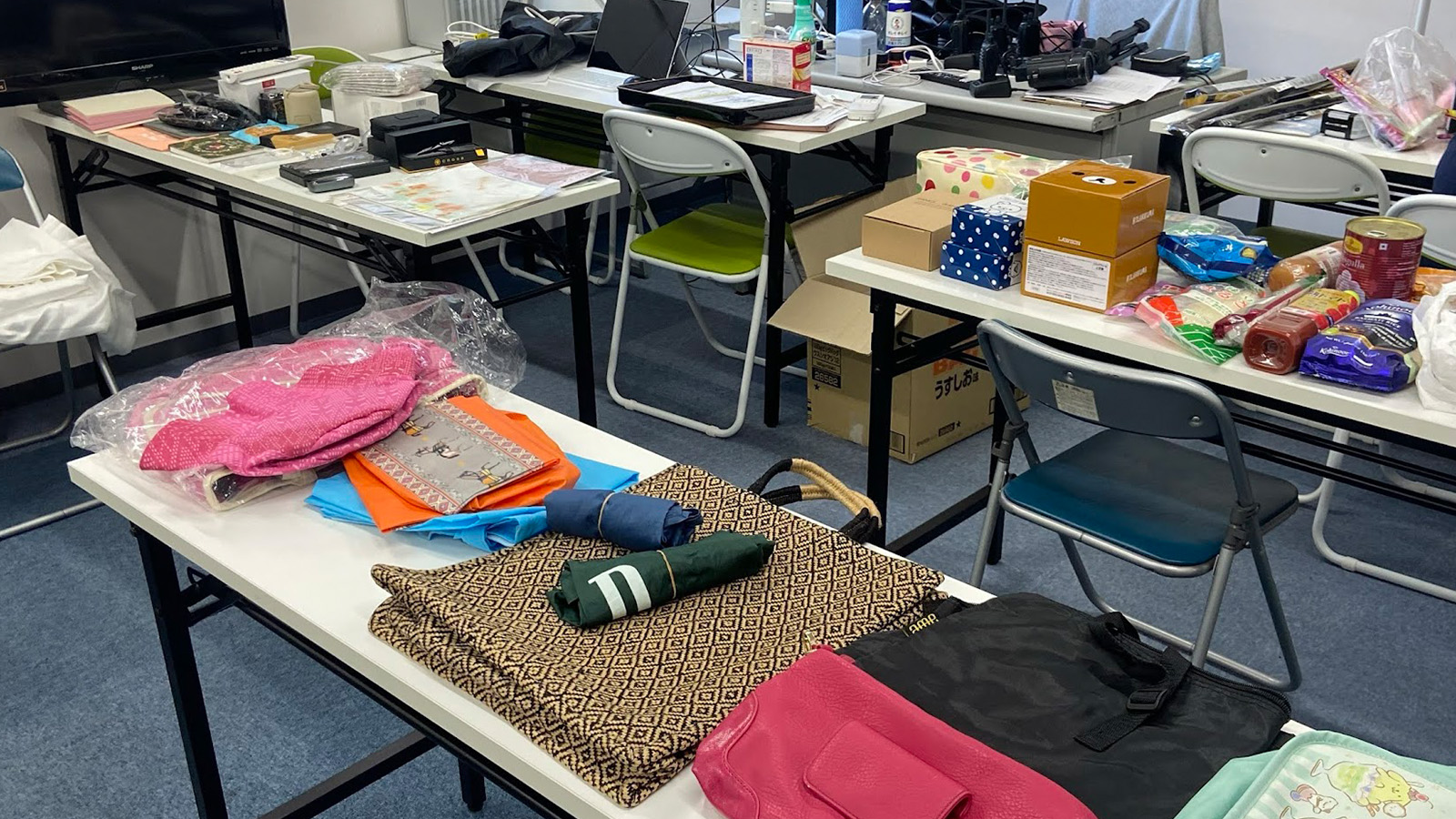
Christmas Speech Contest
Held every December, first- and second-year students prepare and deliver speeches according to their learning stage.
Awards include Grand Prize, Excellence Prize, Rookie Prize (for first-year students), and Student Prize (student voting), ensuring fair evaluation of both effort and outcomes.
This event develops presentation skills, expression, and confidence while fostering respectful listening and mutual learning.
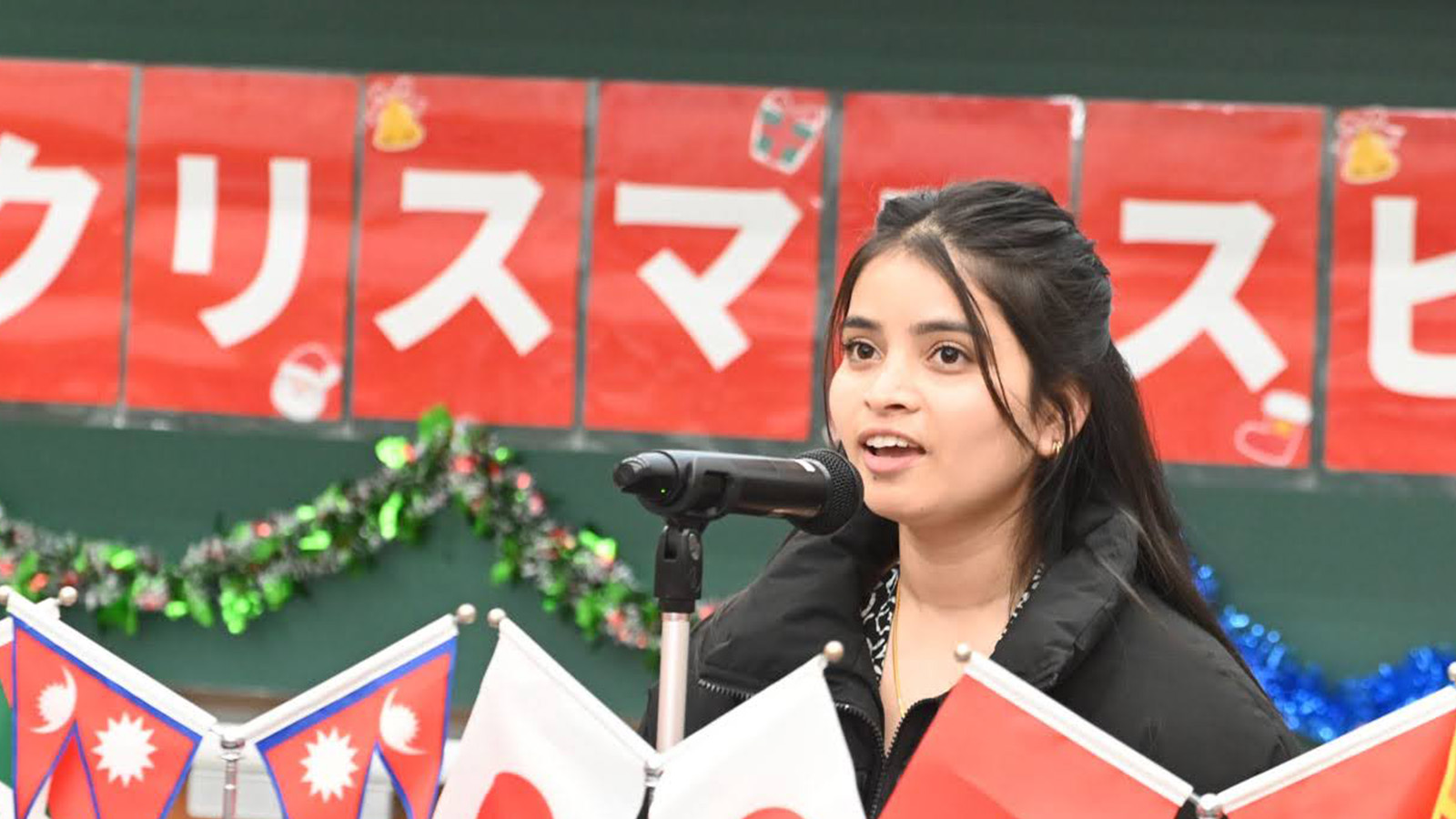
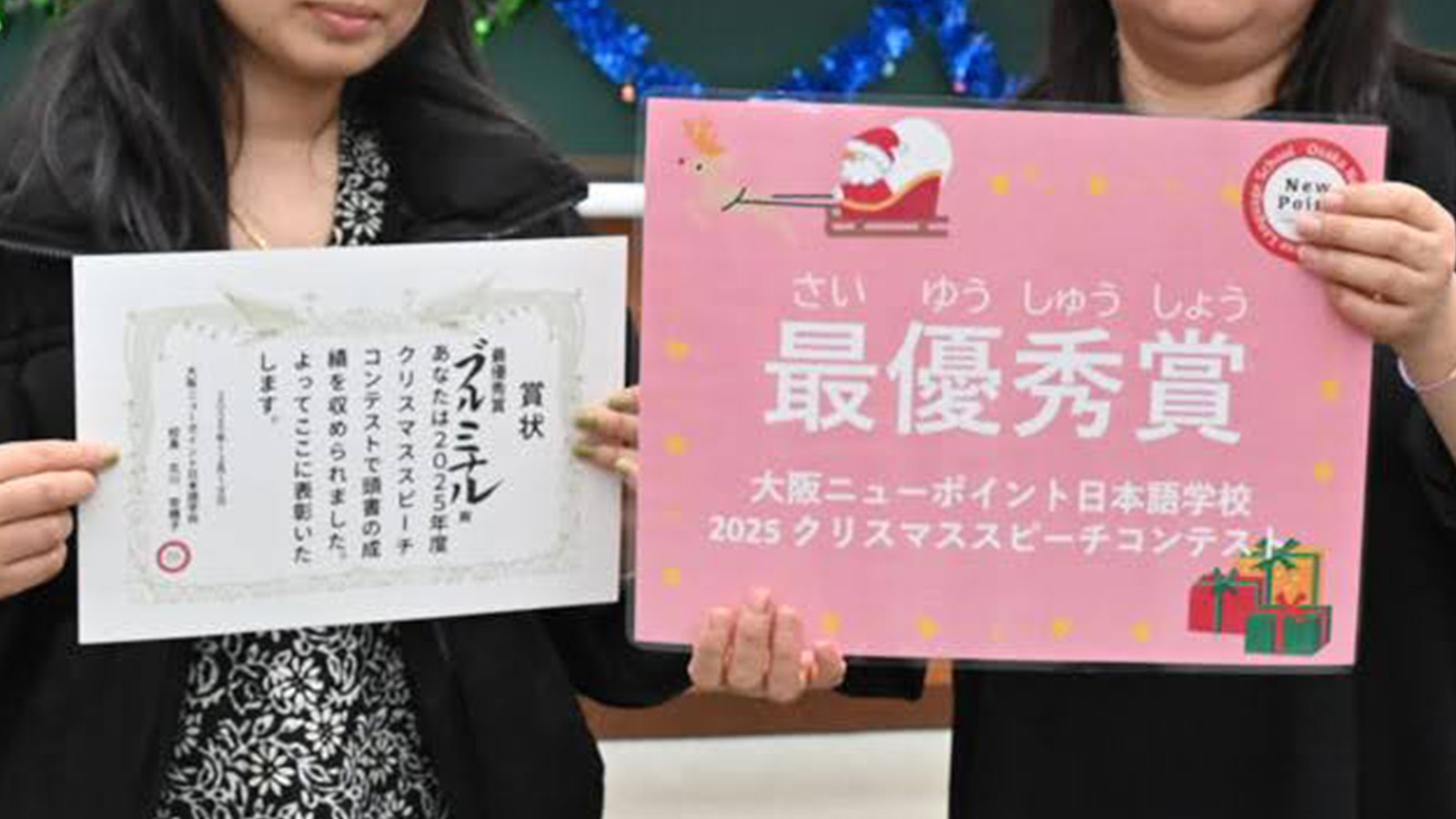
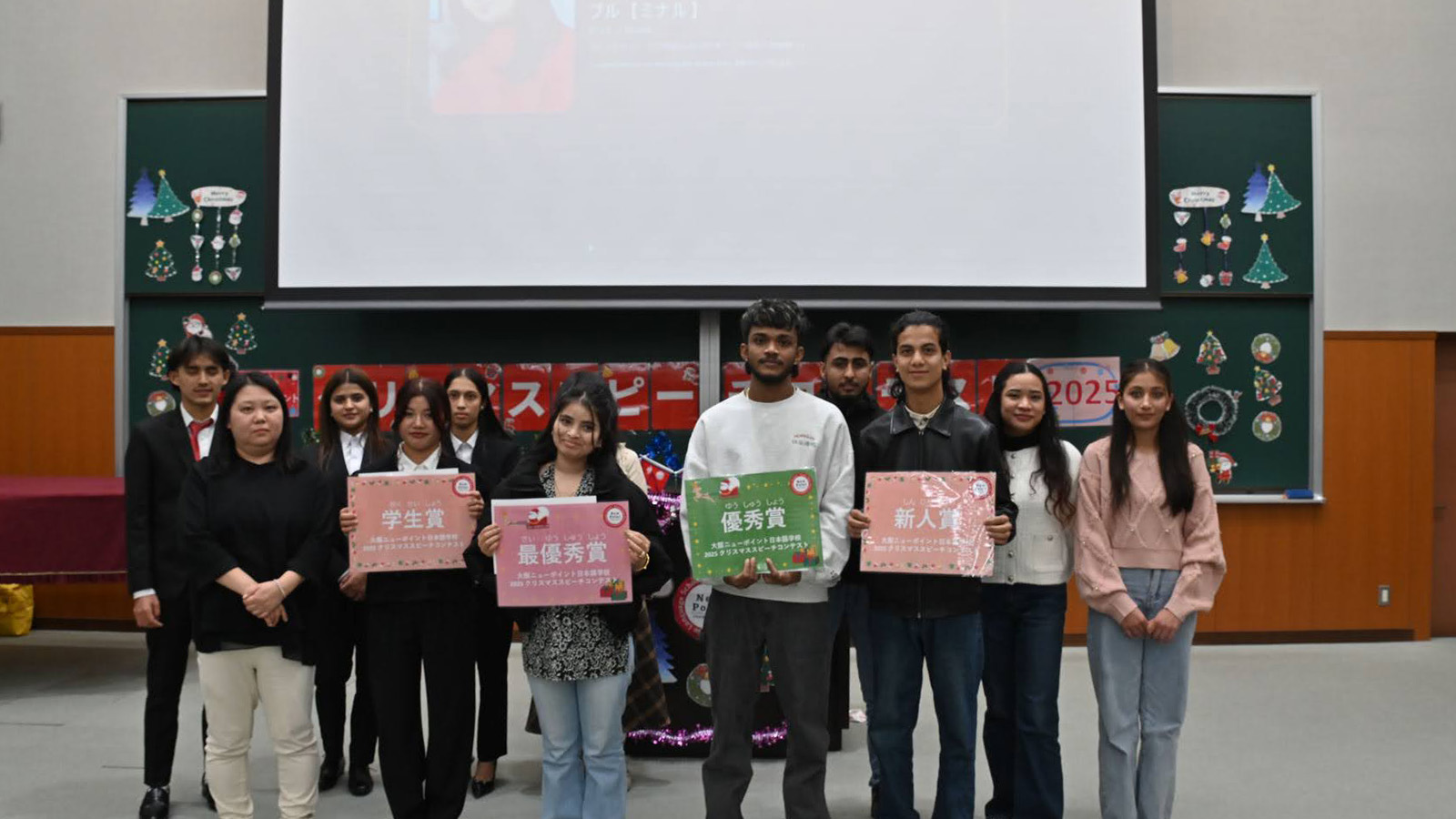
Safety & Risk Management (for International Students)
From three perspectives—(1) life & health, (2) money, and (3) trust—students learn step-by-step how to prepare for and respond to risks in daily life, nurturing legal compliance and social adaptation.
Excursion
Trips to Kyoto (Kinkaku-ji, Heian Jingu, Kyoto Imperial Palace, Arashiyama, etc.), USJ, and other sites. Activities foster Japanese communication in real situations, intercultural understanding, and teamwork.
Graduation Ceremony
Students reflect on their learning and growth, and strengthen motivation for their next stage (higher education or employment). Photos and memories become a lasting source of encouragement.
